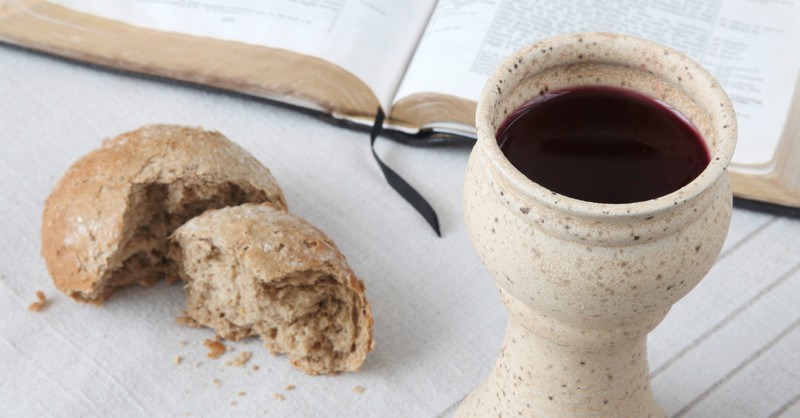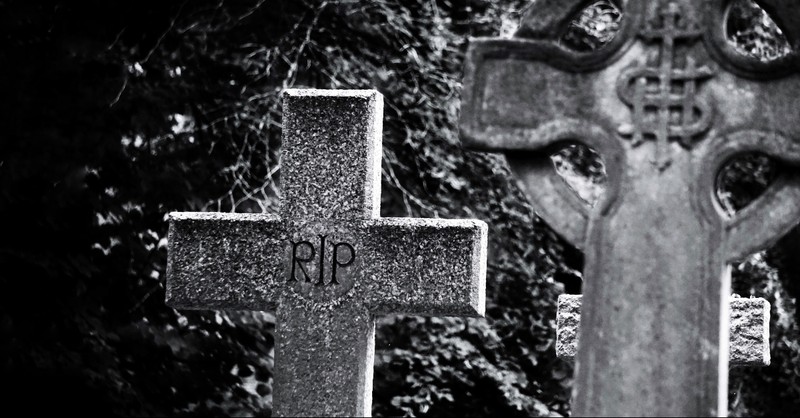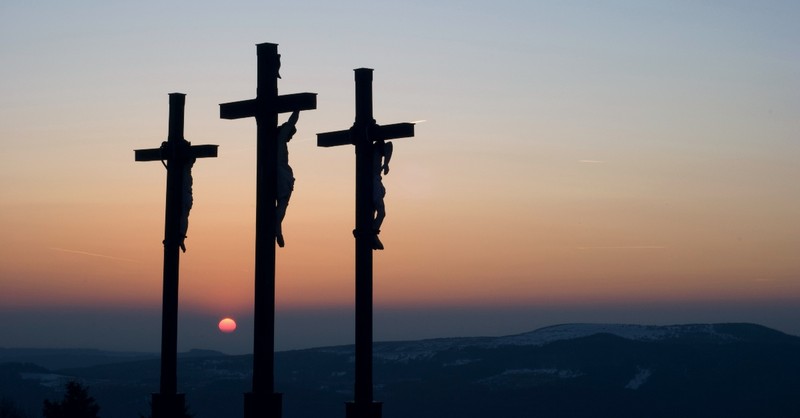
Freedom! This is the cry of legendary warriors and the longing of every heart. We were designed for freedom but in a fallen world. There are many ways to fall into or become subject to bondage—physically, politically, mentally, and spiritually. Therefore, many old favorite hymns about freedom remain favorites.
Freedom is a powerful concept for which men and women have fought and died. Earthly, political freedom is a blessing and a right many believe should be granted to every person, but spiritual freedom is an even greater blessing.
When we think about freedom hymns, we often first consider patriotic ones. But there are great hymns that celebrate the whole person’s freedom (body, mind, and soul) only available through Jesus.
A quote attributed to Martin Luther says, “Either sin is with you, lying on your shoulders, or it is lying on Christ, the Lamb of God. Now, if it is lying on your back, you are lost; but if it is resting on Christ, you are free, and you will be saved. Now choose what you want.”
We often take freedom for granted. Hymns that proclaim or celebrate our spiritual freedom in Christ remind us how precious freedom truly is and what it cost. No matter our social, political, physical, or situational state, we are truly free if we are free in Christ.
Following are 10 hymns about freedom, useful for corporate and private worship, reminding us that we are free in Christ.
Photo Credit: Pablo Heimplatz/Unsplash

1. O For a Thousand Tongues to Sing
This hymn celebrates our joy in God’s plan of redemption in Christ. It is a short and spirited hymn, but it packs a great theological message into a few lines. Its theme is not only redemption—freedom from sin, but the many ways we can be free in Jesus—from sin, fear, illness, sorrow, and death.
Charles Wesley wrote the hymn in 1739 in honor of the first anniversary of his conversion. The year prior, Wesley had been ill, afraid he might die. Charles sensed a presence in his room telling him to believe for healing in Jesus Christ. He did believe, was healed, and was saved. This experience is reflected in phrases such as “Jesus! The name that charms our fears” and “Tis life and health, and peace.”
In Wesley’s exuberant state, one tongue seemed insufficient to proclaim all of God’s great attributes to those who have yet to know Him. Throughout the five short stanzas, there is a sense of a great breakthrough to freedom captured best in this verse: “He breaks the power of canceled sin, He sets the prisoner free; His blood can make the foulest clean; His blood availed for me.” A wonderful hymn for any service but especially when celebrating baptism, Christ’s death and resurrection, or a breakthrough of the gospel in a new believer’s life.
I once heard this song by an auditorium of Christians and must say, it is wonderful to hear God proclaimed by a thousand tongues!
Kelly Nelon and Guy Penrod - O For a Thousand Tongues to Sing [Live] from guy-penrod on GodTube.
Photo Credit: ©Getty Images/Sakorn Sukkasemsakorn

2. And Can It Be That I Should Gain?
This is another of Charles Wesley’s freedom-focused hymns. The tune can be challenging for modern singers, but the words express powerful and practical theological truths with a chorus anyone will join in singing.
The key verse regarding freedom compares the experience of each soul to what Peter and Paul experienced in being imprisoned for their faith but then being freed.
Long my imprisoned spirit lay
fast bound in sin and nature’s night
Thine eye diffused a quick’ning ray,
I woke, the dungeon flamed with light
My chains fell off, my heart was free
I rose when forth, and followed Thee
Wesley writes a beautiful truth about Christ’s freedom in the prior verse:
He left His Father’s throne above,
so free, so infinite His grace,
emptied Himself of all but love,
and bled for Adam’s helpless race
‘Tis mercy all, immense and free
For, O my God, it found out me
How magnificent that this verse starts at the throne of God and finishes in the heart of the believer! Along the way, the words paint a vivid picture of how freely Jesus offers grace and mercy by leaving Heaven and dying for us in our sin.
This is a hymn worth playing through once and then singing the first verse once to accustom the congregation to the tune’s complex sections. It’s also worth stopping before singing verses 3 and 4 to read the words so their richness truly sinks in for every worshipper.
Bill and Gloria Gaither - And Can It Be That I Should Gain (Live) from bill-and-gloria-gaither on GodTube.
Photo Credit: ©GettyImages/Boonyachoat

3. Break Thou the Bread of Life
A more contemplative hymn, generally suited for communion or reflection, this hymn was written by Mary A. Lathbury. Mary hailed from a family of Methodist ministers. She was a poet, a writer, and a professional artist. Where the first freedom hymns were triumphant and full of joy, this hymn is quiet and full of longing.
Jesus’ feeding of the masses clearly inspired Mary as she writes:
Break Thou the bread of life
Dear Lord, to me
As Thou didst break the loaves beside the sea.
Mary longed for a more physical and applicable experience with God “beyond the sacred page” to satisfy her soul’s longing. But she clearly isn’t dismissing God’s Word. This hymn is deeply embedded with images from Scripture.
What Mary wants is to see God’s Word active in her life. The second stanza clarifies:
Bless Thou the truth, dear Lord, to me, to me,
as Thou didst bless the bread by Galilee;
Then shall all bondage cease, all fetters fall;
and I shall find my peace, my All in all.
The hymn writer here echoes Jesus’ words in John 8:31-32: “So Jesus said to the Jews who had believed him, ‘If you abide in my word, you are truly my disciples, and you will know the truth, and the truth will set you free’” (ESV).
In equating freedom with peace, Mary draws a powerful picture of one fighting their bondage, longing for release, knowing they will only find freedom in Jesus Christ.
Photo Credit: ©GettyImages/IngridHS

4. Faith of Our Fathers
This hymn depicts freedom amid struggle, conflict, and martyrdom. It’s a beautiful hymn written by an English priest named Frederick Faber. It has a contemplative and reverent feel, mournful and yet brave.
It effectively uses paradoxical lines to describe the tension believers experience between mortal death and eternal life. Earthly imprisonment and spiritual freedom. Love for both Christians and love for persecutors.
Traditionally, the third verse speaks specifically of freedom:
Faith of our fathers!
We will strive to win all nations unto thee,
and through the truth that comes from God
mankind shall then be truly free.
But from the very beginning, the hymn testifies to a faith that lives “in spite of dungeon, fire, and sword.” And speaks of forefathers who were “chained in prisons dark” but “were still in heart and conscience free.”
This can be a hefty hymn; it references persecution and martyrdom for God’s kingdom. It can feel antiquated in places of peace. But with unrest and persecution of Christians in many parts of the modern world, this is a wonderful hymn to inspire courage and Christ-centered confidence that our freedom in Christ is eternal.
There is significant theology in many hymns. This hymn provides an opportunity to teach younger generations about historical persecution and martyrs of the church. It can open a time of prayer for persecution happening around the globe in modern times. What a wonderful hymn with which to bookend a service of education and understanding of that aspect of our faith.
Photo Credit: ©Unsplash/roberteklund

5. There’s Power in the Blood
Peter proclaims our spiritual freedom through the blood of Jesus in these verses: “knowing that you were ransomed from the futile ways inherited from your forefathers, not with perishable things such as silver or gold, but with the precious blood of Christ, like that of a lamb without blemish or spot” (1 Peter 1:18-19 ESV).
Lewis E. Jones celebrates that freedom in this great old gospel hymn.
Would you be free from your burden of sin?
There’s pow’r in the blood, pow’r in the blood
and
Would you be free from your passion and pride?
There’s pow’r in the blood, pow’r in the blood.
This rousing hymn usually engages even the staunch non-singers by the second or third chorus.
“There is pow’r, pow’r, wonder-working pow’r,
In the blood of the Lamb!
This song has strong harmonies that make singing it an enjoyable group effort.
Blood references sometimes confuse youth or newcomers. Even some long-time churchgoers have questions about Jesus’ blood. How does Jesus’ blood set us free from sin, passion, and pride? Why did Peter write that we have to be ransomed? What held us as hostages before Jesus freed us? This hymn lends itself to a productive conversation about why we talk about blood in church, perhaps at a Passover Seder where the connections are made between the elements of the Seder and Jesus as the Lamb of God. Singing is a wonderful way to reinforce the teaching of great truth.
Buddy Greene, The Isaacs and Gordon Mote - There Is Power in the Blood [Live] from buddy-greene on GodTube.
Photo Credit: ©GettyImages/g215

6. Jesus, I Come
New Englander William T. Sleeper penned this hymn in the late 1800s. He was born in New Hampshire, educated in Massachusetts, and planted churches in Massachusetts and Maine. He also wrote the classic hymn “Ye Must Be Born Again.”
As a church planter, Sleeper had the heart of an evangelist, which is reflected in this hymn. It may have been known early on by its first phrase, “Out of my bondage,” perhaps echoing what Sleeper knew is the cry of every heart yet to receive Christ.
Sleeper announces freedom from the very first verse.
Out of my bondage, sorrow, and night,
Jesus, I come, Jesus, I come
into Thy freedom, gladness, and light,
Jesus I come to Thee.
This longing hasn’t diminished with the years, and this hymn has regained popularity in the contemporary faith community. Understandable since the lyrics express timeless longings.
Out of my shameful failure and loss,
Jesus, I come, Jesus, I come
into the glorious gain of Thy cross,
Jesus I come to Thee
The image of this hymn is of one who is shackled to one of life’s many types of bondage but is now released to flee into Jesus’ waiting arms. The traditional tune lends itself to a soft, gliding melody and each verse contains something for almost every trial we might suffer this side of glory. Still, the answer throughout is “Jesus, I come to Thee.”
This is a wonderful hymn not only for evangelism but as a reminder for us all that no matter what we face, we are free to come with it all to Jesus.
Wesley Pritchard, Joy Gardner, Charlotte Ritchie and Mike Allen - Jesus I Come [Live] from bill-and-gloria-gaither on GodTube.
Photo Credit: ©GettyImages/Motortion

7. At Calvary
We must express deep respect for this hymn’s author, penning the depth and breadth of these lyrics as he was going about his daily work. When the initial lyrics came to him, Dr. William R. Newell was a Bible teacher at Moody Bible Institute in Chicago, IL. Between classes, he jotted them on the back of an envelope.
On his way to his lecture, Dr. Newell encountered the director of music, Daniel Towner. Handing Towner the lyrics, Newell asked if he would compose a tune. By the time Newell’s lecture had ended, “At Calvary” was a hymn. It may be the first recorded hymn-writing “baton-relay” in history!
Newell repeatedly celebrates freedom in the chorus:
Mercy there was great, and grace was free
pardon there was multiplied to me
There my burdened soul found liberty, at Calvary.
While it’s a hymn designed to be sung at a somewhat peppy pace, most find it effective to start slowly and softly before building as the lyrics do. The verses travel with the singer from the years they spent lost without Jesus to a spiritually mature astonishment at what God did on Calvary’s cross.
“Years I spent in vanity and pride, caring not my Lord was crucified, knowing not it was for me He died on Calvary” is the first verse. But by verse four, we’re singing,
Oh, the love that drew salvation’s plan!
Oh, the grace that brought it down to man!
Oh, the mighty gulf that God did span, At Calvary!
Photo Credit: ©iStock/Getty Images Plus/MichaWolf

8. My Country, ‘Tis of Thee
This patriotic celebration of freedom is another hymn reportedly written on a scrap of paper in less than half an hour. The tune is easily recognizable as that of “God Save the Queen.” Samuel F. Smith was a seminary student when he wrote these words known by most Americans. After Smith graduated from Harvard and Andover Newton Theological Seminary, he spent his life as a Baptist minister, also composing over 150 hymns.
Of course, when the hymn was penned somewhere just before its first performance on July 4, 1831, there were still many people living in America who were not free. That was still to come.
The Rev. Dr. Martin Luther King, Jr. famously referenced this hymn in his “I Have a Dream” speech delivered in 1963: “This will be the day when all of God's children will be able to sing with new meaning: My country, ‘tis of thee, sweet land of liberty, of thee I sing. Land where my fathers died, land of the pilgrims' pride, from every mountainside, let freedom ring.”
“My Country, ‘Tis of Thee” doesn’t hide its patriotism. It is effuse in its celebration of the freedom Americans treasure, calling it “Sweet land of liberty,” “land of the noble free,” and “from every mountainside let freedom ring.”
The last verses celebrates God’s provision of this freedom:
Our fathers’ God, to Thee,
Author of liberty,
to Thee we sing
Long may our land be bright
with freedom’s holy light
protect us by Thy might,
Great God, Our King!
Photo Credit: ©iStock/Getty Images Plus/moose henderson

9. Wonderful Grace of Jesus
Children and young people who grew up attending church in the 1950s, 60s, and 70s cherish this hymn with its rolling lyrics and overlapping harmonies. This was one of our favorites, requested at every opportunity. This up-tempo song was like spiritual caffeine rousing us all to attend to its message.
Haldor Lillenas, who immigrated to America from Norway as a child, was a prolific composer of hymns (by some estimations, he wrote over 4,000). His wife, Bertha Mae, was also a songwriter, and they lived on an estate they called “Melody Lane.” This was one of Lillenas’ first hymns, composed on an organ he purchased for $5.
This song is a rollicking, rousing celebration of the freedom we receive through the wonderful and matchless grace of Jesus. Not content with one stanza, the third line of every verse is dedicated to freedom!
“Taking away my burden, setting my spirit free;” “Chains have been torn asunder, giving me liberty;” and “Purchasing peace and heaven, for all eternity.” All this because “the wonderful grace of Jesus reaches me.”
Like many other freedom hymn writers, Lillenas wonders how he will describe the grace of Jesus that is “taking away my burden” and “setting my spirit free.” He does this masterfully with both his lyrics and musical escalation.
To truly appreciate the wonder of this hymn, it must be sung in parts. The bass is a joy to hear, and the overlapping lyrics and harmonies of the chorus leave everyone with a musical experience of freedom!
The Cathedrals - Wonderful Grace of Jesus from bill-and-gloria-gaither on GodTube.
Photo Credit: Getty Images/marydan15

10. Amazing Grace
This world-renowned hymn doesn’t use the word “freedom,” but if you ask anyone to name a hymn celebrating freedom, this is the one named. Part of that is due to the Chris Tomlin version of the song, with lyrics added referencing freedom from sin. The other has to do with the song’s history, how well-known it is, and that it celebrates our freedom in Christ without specifically using the word freedom in the original lyrics.
“Amazing Grace” was written by Englishman John Newton around 1773. Newton spent much of his early and young adult life as a slave trader, even after having a conversion experience at sea. During a storm, Newton prayed for the ship to be saved, and God worked a miraculous deliverance.
Later in life, Newton publicly renounced his actions through an anti-slavery pamphlet penned in 1788, Thoughts Upon the African Slave Trade. He influenced (and later became an ally of) British politician William Wilberforce who campaigned for abolition. Newton preached abolition until he died in 1807.
Amazing Grace,
how sweet the sound,
that saved a wretch like me.
I once was lost,
but now am found.
Was blind, but now I see.
The sweet, precious, and costly freedom we experience because of Jesus’ death on the cross, captured in a song treasured by millions.
What hymns do you love that celebrate freedom? In what other ways is spiritual freedom celebrated in our hymns and contemporary music? The biggest question is, can we ever celebrate enough our freedom in Christ?
Celtic Woman Sings Amazing Grace, and It's Simply Amazing! from celtic-woman on GodTube.
Photo Credit: ©iStock/Getty Images Plus/Boonyachoat
Originally published Tuesday, 31 May 2022.




